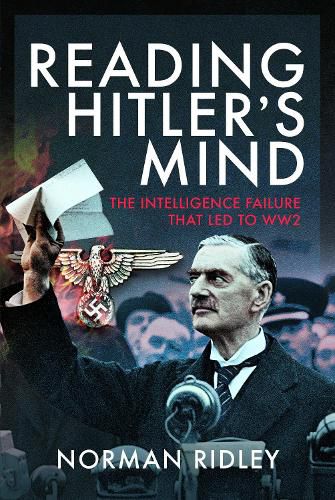Readings Newsletter
Become a Readings Member to make your shopping experience even easier.
Sign in or sign up for free!
You’re not far away from qualifying for FREE standard shipping within Australia
You’ve qualified for FREE standard shipping within Australia
The cart is loading…






Most strongly associated with Prime Minister Neville Chamberlain, it is often stated that Britain’s policy of appeasement was instituted in the 1930s in the hope of avoiding war with Hitler’s Nazi Germany. At the time, appeasement was viewed by many as a popular and seemingly pragmatic policy. In this book the author sets out to show how appeasement was not a naive attempt to secure a lasting peace by resolving German grievances, but a means of buying time for rearmament. By the middle of the 1930s, British policy was based on the presumption that the balance of power had already dramatically shifted in Germany’s favour. It was felt that Britain, chiefly for economic reasons, was unable to restore the balance, and that extensive concessions to Germany would not satisfy Hitler, whose aggressive policies intensified the already high risk of war.. The only realistic option, and one that was clearly adopted by Neville Chamberlain, was to try to influence the timing of the inevitable military confrontation and, in the meantime, pursue a steady and economically sustainable programme of rearmament. Appeasement would ‘buy’ that time for the British government. Crucially this strategy required continuously updated and accurate information about the strength, current and future, of the German armed forces, especially the Luftwaffe, and an understanding of their military strategy. Piercing the Nazis’ veil of secrecy was vital if the intelligence services were to build up a true picture of the extent of German rearmament and the purposes to which it might be put. The many agents, codebreakers, and counter-espionage personnel played a vital role in maximising the benefits that appeasement provided
even as war clouds continued to gather. These individuals were increasingly handed greater responsibility in a bid to inform British statesmen now scrambling to prepare for a catastrophic confrontation with Germany. In Reading Hitler’s Mind, Norman Ridley reveals the remarkable efforts made by the tiny, underfunded and often side-lined British intelligence services as they sought to inform those whose role it was to make decisions upon which the wheels of history turned. AUTHOR: Norman Ridley, an Open University Honours Graduate, sold his business and retired to devote himself to a study of the less well covered aspects of the Battle of Britain. He lives in the Channel Islands, surrounded by his family, and is a regular contributor to local media.
$9.00 standard shipping within Australia
FREE standard shipping within Australia for orders over $100.00
Express & International shipping calculated at checkout
Stock availability can be subject to change without notice. We recommend calling the shop or contacting our online team to check availability of low stock items. Please see our Shopping Online page for more details.
Most strongly associated with Prime Minister Neville Chamberlain, it is often stated that Britain’s policy of appeasement was instituted in the 1930s in the hope of avoiding war with Hitler’s Nazi Germany. At the time, appeasement was viewed by many as a popular and seemingly pragmatic policy. In this book the author sets out to show how appeasement was not a naive attempt to secure a lasting peace by resolving German grievances, but a means of buying time for rearmament. By the middle of the 1930s, British policy was based on the presumption that the balance of power had already dramatically shifted in Germany’s favour. It was felt that Britain, chiefly for economic reasons, was unable to restore the balance, and that extensive concessions to Germany would not satisfy Hitler, whose aggressive policies intensified the already high risk of war.. The only realistic option, and one that was clearly adopted by Neville Chamberlain, was to try to influence the timing of the inevitable military confrontation and, in the meantime, pursue a steady and economically sustainable programme of rearmament. Appeasement would ‘buy’ that time for the British government. Crucially this strategy required continuously updated and accurate information about the strength, current and future, of the German armed forces, especially the Luftwaffe, and an understanding of their military strategy. Piercing the Nazis’ veil of secrecy was vital if the intelligence services were to build up a true picture of the extent of German rearmament and the purposes to which it might be put. The many agents, codebreakers, and counter-espionage personnel played a vital role in maximising the benefits that appeasement provided
even as war clouds continued to gather. These individuals were increasingly handed greater responsibility in a bid to inform British statesmen now scrambling to prepare for a catastrophic confrontation with Germany. In Reading Hitler’s Mind, Norman Ridley reveals the remarkable efforts made by the tiny, underfunded and often side-lined British intelligence services as they sought to inform those whose role it was to make decisions upon which the wheels of history turned. AUTHOR: Norman Ridley, an Open University Honours Graduate, sold his business and retired to devote himself to a study of the less well covered aspects of the Battle of Britain. He lives in the Channel Islands, surrounded by his family, and is a regular contributor to local media.